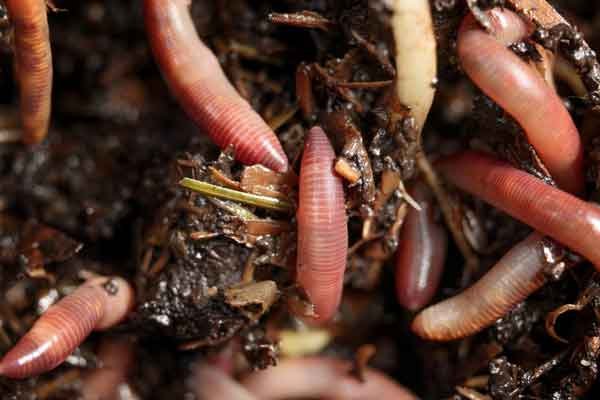
You might picture a worm just slithering around, but there’s so much more going on beneath the surface. Earthworms are a huge part of the ecosystem, promoting healthy plant growth and soil structure. This blog will dive into how they break down organic material, why it’s important, and what role they play in maintaining the health of our planet. So, grab a cup of coffee, and let’s dig deep!
What Do Earthworms Eat?
Earthworms are not picky eaters; they’ll chow down on a variety of organic materials. But you might be wondering, what exactly qualifies as “organic material”? Well, that’s anything that comes from living things. Think of it as their buffet menu, which includes:
- Decaying leaves
- Grass clippings
- Fruit and vegetable scraps
- Manure
- Dead plant matter
When earthworms eat this organic material, it goes straight into their digestive system. You could say their gut is like a mini composting machine. As they process the food, they break it down into smaller pieces, making it easier for microorganisms—like bacteria and fungi—to further decompose it. This process is essential for returning nutrients to the soil.
How Do Earthworms Digest Organic Material?
Now, let me explain how exactly earthworms digest all that organic material. When they consume it, the food doesn’t just sit there; it goes through a fascinating journey. Earthworms have a specialized structure called a gizzard, which grinds up the food particles. It’s a bit like having your own little blender in your body, which allows them to break food down effectively.
Once the food is ground up, it moves into their intestines, where digestion and nutrient absorption occur. Here’s the thing: while earthworms are consuming organic matter, they also help aerate the soil. As they burrow, they create channels that allow air and water to flow through the ground. This aeration is crucial for plant roots to access nutrients, and it’s all thanks to these tiny diggers!
The Role of Microorganisms
You might not realize it, but there’s a whole team of helpers working alongside earthworms. Enter *microorganisms*, the unseen champions of the decomposition process. Once earthworms break down organic materials into smaller bits, these tiny creatures—like bacteria and fungi—come in to do their job.
Microorganisms further decompose the material by breaking down complex substances into simpler forms. This process releases essential nutrients such as nitrogen, phosphorus, and potassium back into the soil. These nutrients are vital for plant growth and health. Honestly, without this teamwork, we wouldn’t have the productive gardens and lush landscapes we enjoy today.
Why Earthworms Matter for Soil Health
So, why should we care about earthworms? Well, they play a significant role in enhancing soil health. Healthy soil is the foundation for healthy plants, and earthworms are like nature’s caretakers, ensuring that the soil remains rich in nutrients and well-structured.
Here are some key benefits of having earthworms around:
- Nutrient Cycling: By breaking down organic material, earthworms help recycle nutrients within the ecosystem.
- Soil Structure: Their burrowing actions improve soil texture, allowing better air and water movement.
- Increased Fertility: The castings they leave behind (worm poop) are full of nutrients, making soil more fertile.
Without these little guys, we’d struggle to maintain rich, productive soils. They truly are an essential part of our ecosystems.
How to Attract Earthworms to Your Garden
Maybe you’re thinking, “I want my garden to be a worm-friendly zone!” Attracting earthworms is easier than you might think. It begins with creating a welcoming environment. Here are some tips:
1. **Add Organic Matter:** Regularly incorporate compost, leaves, or grass clippings into your soil to provide food for worms.
2. **Avoid Chemicals:** Pesticides and herbicides can harm earthworms. Opt for natural pest control methods instead.
3. **Moisture is Key:** Earthworms thrive in moist environments, so keep the soil slightly damp but not waterlogged.
4. **Create Shelter:** Mulching helps provide cover and retains moisture, making your garden more appealing to earthworms.
By following these steps, you can encourage more earthworms to make your garden their home, promoting a healthier ecosystem overall.
The Bottom Line
In summary, earthworms are nature’s unsung heroes, breaking down organic material and enriching our soil in countless ways. They don’t just munch on leaves and scraps; they play an essential role in the larger ecosystem. By facilitating nutrient cycling and improving soil structure, they support healthy plant growth.
So next time you see a worm working hard in the garden or in your compost bin, remember, there’s a lot more going on than just a little squirming! You might not notice them at first, but earthworms are fundamental to keeping our environment thriving. Let’s give them the respect they deserve and appreciate the remarkable job they do every day!
